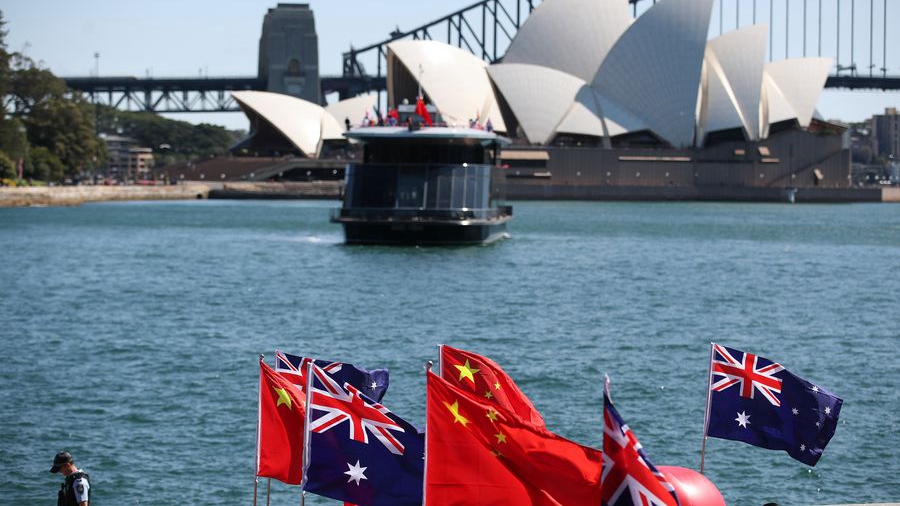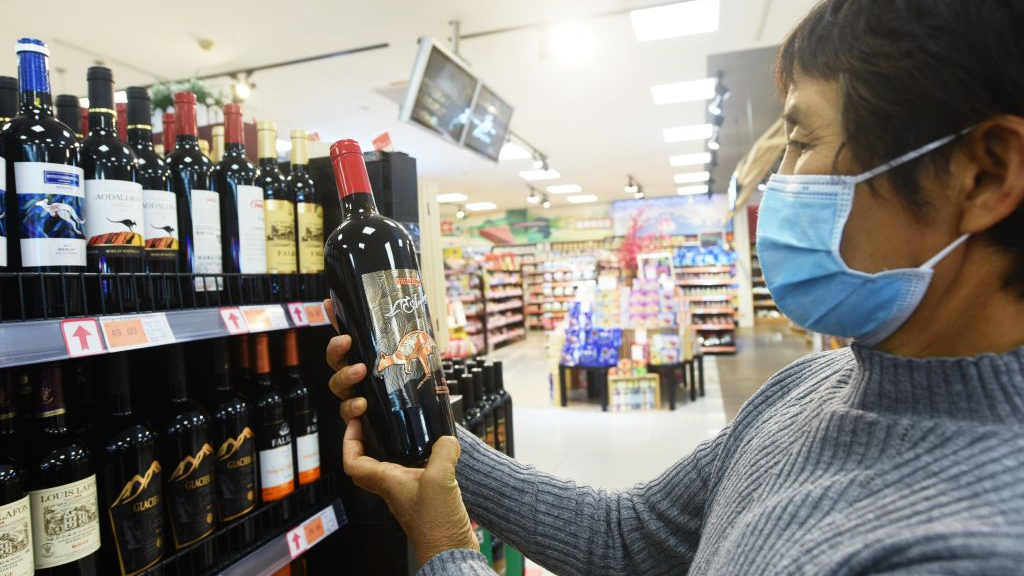Editor's note: Hannan Hussain is a foreign affairs commentator and author. He is a Fulbright recipient at the University of Maryland, the U.S., and a former assistant researcher at Islamabad Policy Research Institute. The article reflects the author's opinions and not necessarily the views of CGTN.
On June 24, Beijing filed three complaints at the World Trade Organization (WTO) over Canberra's anti-dumping and anti-subsidy measures on wind towers, railway wheels, and stainless steel sinks – all three goods imported from China. "We hope that Australia will take concrete actions to correct its wrong practices, avoid distortions in the trade of related products, and bring such trade back to the normal track as soon as possible," said Chinese Ministry of Commerce Spokesperson Gao Feng.
The lawsuit arrives at a critical time as it delivers a fact-check of Australia's politicization of trade tensions with Beijing, led by the former's campaign to battle out wine and barley disputes at the international body, alongside hollow threats of pursuing further action.
Take Beijing's identification of specific Chinese products. The reality that Canberra has been treating these goods in violation of international rules for the past seven years, forces Australia to take a longer view of its own discriminatory trade practices, given that a pattern of anti-dumping advances against select Chinese exports became evident in 2014, rejecting Australia's efforts to relocate bilateral trade dispute tensions in recent years.
More importantly, Beijing's emphasis on imposed or extended anti-dumping and anti-subsidy measures on China-made products, effectively shifts the onus on Canberra to establish its rationale for violating fair market practices on a multiyear basis.
After all, China reserves hard evidence of its exporters taking a hit from Australia's discriminatory trade measures in other sectors, and has traced patterns of export price manipulations to Australian exports of barley and wine to China. In damning contrast, Canberra appears to simply ride the tide of populist rhetoric against Beijing as it strives for an asymmetry of trade dispute information, likely coming to a head at the international body.
The muted reception of Australia's self-initiated trade provocations against China in its own fair trade discourse presents a telling account of how Canberra flouts the spirit and authority of WTO rules, the same rules that it claims to "vigorously defend" in response to China's new lawsuit. But after communicating to Canberra a list of remedial measures to address trade tensions, and giving high-level diplomacy sufficient time, China makes clear that the interests of its companies won't be placed on the backburner.

The Chinese and Australian national flags in Sydney, Australia, September 8, 2019. /Xinhua
The Chinese and Australian national flags in Sydney, Australia, September 8, 2019. /Xinhua
Worth noting is the veracity of China's seven-year timeline vis-à-vis Australian anti-dumping duties, which stands confirmed by Dan Tehan, Canberra's trade chief. By his own admission, both Chinese-manufactured stainless-steel sinks and wind towers were the subject of Australia's tariff targeting in consecutive years.
Thus understood, the onset of discriminatory trade measures against select Chinese exporters since 2014 predates Canberra's current complaints about China allegedly bolstering its duties against Australian goods without rhyme or reason. Instead, what this quality of argument stands to achieve is a further erosion of supporting evidence: that select Australian goods have been dumped into Chinese markets at subsidized rates, harming domestic producers that Canberra overlooks in its "due diligence" charade at the WTO.
"What we want to do is see very constructive engagement with China," said Tehan. "We want to sit down [with China] and work through these disputes."
It is difficult to buy this veneer of cooperation at face value when Canberra simultaneously dismisses Beijing's stand for its domestic exporters as one that "doesn't mean anything" and is bound by "short term" limitations.
First, it is Australia – not China – that calls the bluff on that short term narrative, having knocked on the doors of privileged Western democracies in a futile bid to make self-initiated trade disputes all about China.

The Chinese and Australian national flags on a celebration event in Sydney, Australia, September 8, 2019. /Xinhua
The Chinese and Australian national flags on a celebration event in Sydney, Australia, September 8, 2019. /Xinhua
Second, positioning the legitimate interests of Chinese companies at the center of Beijing's WTO appeal was bound to ruffle some anti-China ranks in Canberra. After all, the lobby has helped bill Australia's case at the WTO against two conflicting standards for domestic exporter protection in Australia and China.
Now that the Morrison administration faces a painful test in transforming its rhetoric into admissible institutional evidence, it emerges as the lone voice in alleging that China's WTO lawsuit is perhaps driven by suspicious timing. The larger takeaway is this: that even after two consecutive trade disputes mounted at the WTO, Canberra offers no plausible grounds to disprove that same lawsuit's content with even a modicum of certainty.
Choosing confrontation over concrete trade normalization is likely to render such blowbacks inevitable on the world stage.
(If you want to contribute and have specific expertise, please contact us at opinions@cgtn.com.)

